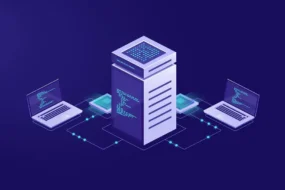Tired of being online all the time? Or maybe making a radical change in your life that includes an Internet detox? Regardless of the reasons, we will provide you with the methods to do just that. We are all more or less connected, but (sadly) human beings don’t have a plug that could be pulled to make one vanish from the virtual world.
Cutting Electronics Loose Isn’t Enough to Disappear from the Internet
Shutting down Wi-Fi, unplugging the Ethernet cable, disabling mobile connectivity, and not being tempted to reconnect? Sounds tough. We’re all so used to the omnipresent Internet that this looks like becoming a caveman. But that would only mean ignoring the online world, not removing any remaining traces of yourself from it. The process of removing yourself from the internet would start with deleting all the accounts.
Over the years, you’ve probably given your credentials to many web pages. Now it’s time to unregister. Sit down and try your best to remember. Which of the following have you been using?
- Social media
- Video platforms
- Online shops
- Dating websites
- Online games
- File sharing entities
- Forums
- Mailing services
Try to find them all before starting the deletion. To help your memory, search your emails for notifications about account creation. Hopefully, you’ll be able to access all of them but be prepared to recover passwords when necessary. Some platforms allow easy account deletion together with all the associated data. With others, you’ll probably have to get in touch with customer support to ask for account removal.
Regarding social media and forums, you’ll need to decide if you wish to remove all of what you have posted online. Check if that gets deleted together with the account. If not, you can ask admins to remove your posts in bulk or do it yourself one by one. This could get very tedious, but there’s more to do.
You Have More Connections Than You Think

There is quite a lucrative business of harvesting private data across the Web and trading it. Few people are aware of how many data brokers are out there and how much they know about millions of us. Sometimes you just can’t know if a given corporation has had an opportunity to collect any of your personal data.
There are some initiatives trying to spread more knowledge about data brokers, like Privacy Rights Clearinghouse. It has a long list of brokers together with contacts to them and if they allow opting out from the database. Contacting them all manually would be too laborious, so you might consider if it’s worth the hassle. There are online services that can help with that, contacting many of the database owners automatically. But they must know what to look for, so they need a lot of your data: full name, your emails, usernames, and possibly also the home address. And, of course, your consent to act on your behalf.
There is another place to delete your data from: Google. Search engines update their lists of results regularly. But after you erase a lot of public information about yourself, you may still see some personal information about yourself in the search results after Googling your name as if you deleted nothing. Nobody can force Google to remove that instantly, but you can use this support page to make a request and speed things up.
All this process is starting to look really troublesome. The question is:
Is Deletion Really Necessary?
There are things about you that you won’t be authorized to remove. This includes national database records with a lot of sensitive data: full name, place of birth, residential address, ID numbers, phones, emails, and medical records. Your current and past employers have similar data, too, and you can’t always legally demand to delete it. That depends on the applicable jurisdiction. For example, the European Union’s GDPR includes the right to be forgotten. But sometimes you just need to trust that your privacy is protected well enough by responsible authorities.
If you insist on deleting yourself from the Internet, you need to decide how thoroughly you wish to do it. Why did you want it in the first place? Were you hacked and wish to prevent that from happening again? Did someone abuse something that could be learned about you online? Or are you just concerned about exposing your privacy too much? In all these cases, you might want to use the Internet more carefully instead of quitting. How?
Don’t Quit, But Be Careful and Safe

Cybersecurity and self-protection measures are a long story for another article. Let’s just make a short list:
- Watch what you post online – don’t mention anything you wouldn’t wish to get public.
- The private conversations should be safe until somebody gets hacked. Services running them might access chat content for advertising purposes, but that depends on their policy.
- Use strong passwords that nobody would guess, regardless of how well they know you. Try not to reuse them.
- Keep your software updated, especially an antivirus and a browser. Security flaws occur from time to time, but responsible developers fix them promptly.
- Subscribe to a reliable VPN service. It can take your online privacy to another level, shielding you from many kinds of online threats.
- Learn to recognize phishing. It tries to exploit people’s trust with psychological tricks.
- When using someone else’s computer, browse in incognito mode. It erases most of the user’s data upon quitting.
As you see, deleting yourself from the Internet isn’t simple. You’re probably far more connected than you realize. If you wish for more online privacy, it’s easier to learn protective habits and raise your cybersecurity awareness. Then, you can be safe online!
In case you missed it!










